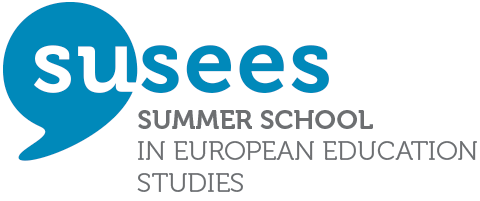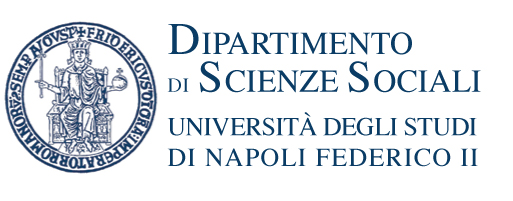Paolo Landri (IRPPS-CNR, IT)
Paolo Landri is a Senior Researcher of the CNR-IRPPS – Institute of Research on Population and Social Policies of National Research Council. His expertise is in sociology of education, research methodologies, and organizational studies, having participated to many research projects at national and international level. Recently, his main research interests concern educational organizations and policies. He is now involved in national and international research projects on the transformations of educational setting by the widespread diffusion of web-learning in school, work, and youth communities. Internationally, he is the link convenor of the EERA Network 28 ‘Sociologies of Education’, he is an Associate Member of ProPEL (Professional Practice Education and Learning) of the University of Stirling, and is a board member of several international journals.
Download Landri Presentation at SUSEES 2017
The issue of the lecture is the digital governance of education in Europe. In particular, the lecture will be focused on: a) the rise of the digital governance of education b) how the European Space of Education are regulated and made digitally visible.
Firstly, the rise of digital governance will be analysed. Digital technologies are changing the ways in which education is delivered, practiced, and managed. The ‘here and how’ of education is challenged, education is made more mobile, and it is increasingly difficult to conceive education spaces in the classical bounded, closed, suspended and static topologies (Landri & Neumann 2014). The new topologies of education are embedded in novel configurations of data infrastructure, software, codes, digital technologies and related circuits of expertise that are representing both the ‘building-blocks’ and the ‘hidden managers’ of educational practices, institutions, and organizations (Dunleavy 2005; Williamson 2014). Complex assemblages of big data, visualization displays, screens, virtual worlds, servers, learning analytics, software, algorithms and the circuits of knowledge of designers, programmers, data scientists are giving shape to the digital governance of education.
Secondly, the lecture will pay attention on the European space of education is fabricated and made digitally visible. The history of the Europeanization of education will be considered as a movement for fabricating a space of commensuration (Lawn & Grek 2012). While education was initially conceived a national regulated field by EU member states, and accordingly education systems were thought to be incommensurables in the foundational Treaty of Rome in 1957, they were included over time in a space of commensurability through the definition of agreed-upon performance standards. The lecture will illustrate the main passages of this fabrication, and will pay attention to the contemporary strategy of monitoring the progresses of EU member states towards the accomplishment of the new benchmarks in the coming landscape of Horizon 2020. In that respect, it will analyse on the toolbox mobilized here to accompany the realization of these standards: guidelines, country reports, and online dashboard. The lecture will investigate the emergence and the consolidation of this digital space, and at the same time, the semiotics of the visual enactment of the European Space of education.
The suggested readings cover the main points of the lecture. Williamson (2016) and Souto-Otero and Beneito-Montagut (2016)’ papers are foundationals to understand the rise of the digital governance of education; my paper (Landri 2017) and Decuypere’s article (2016) will be helpful in understanding how the European space of education are made governable and visible.
Readings
Decuypere, Mathias. 2016. “Diagrams of Europeanization: European Education Governance in the Digital Age.” Journal of Education Policy 31 (6): 851–72. doi:10.1080/02680939.2016.1212099. Landri, Paolo. 2017. “Standards and Standardisation in European Politics of Education.” In A European Politics of Education. Perspective from Sociology, Policy Studies and Politics, edited by Romuald Normand and Jean-Louis Derouet, 13–30. London: Routledge. Souto-Otero, Manuel, and Roser Beneito-Montagut. 2016. “From Governing through Data to Governmentality through Data: Artefacts, Strategies and the Digital Turn.” European Educational Research Journal 15 (1): 14–33. doi:10.1177/1474904115617768. Williamson, Ben. 2016. “Digital Education Governance: An Introduction.” European Educational Research Journal 15 (1): 3–13. doi:10.1177/1474904115616630.


